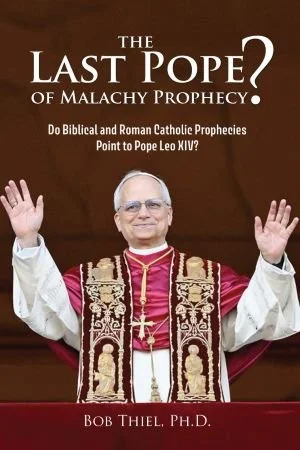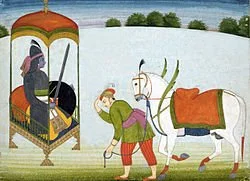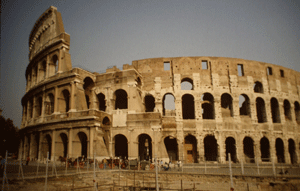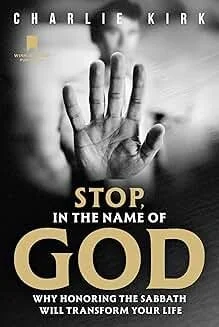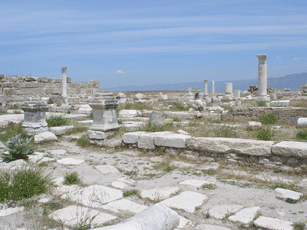A while back, a religious leader in Turkey publicly condemned New Year’s and Christmas as pagan:
Christmas and New Year celebrations are events where both pagan rituals and capitalist drives are intertwined, the head of Turkey’s Religious Affairs Directorate Mehmet Görmez said in a statement…
“What I will most object to as the religious affairs head is the Christmas consumer economy that causes cultural and identity-related erosion in children,” Görmez said…
“I see mass parties and celebrations similar to a form of revenge people take on the time phenomenon,” Görmez said. “Especially [celebrating] with drinking, gambling and lotteries… it is impossible to approve of such things.”
So, one who does not claim to be Christian has properly suggested that New Year’s parties are wrong and that Christmas’ influence on children is not positive for children.
The Bible teaches that God’s year begins in the Spring (Exodus 12:2).
Did you know that not only were Christmas and New Year’s not observed by early true Christians, even Roman Catholic supporting writers condemned the celebration associated with them?
The Catholic Encyclopedia reports:
Christian writers and councils condemned the heathen orgies and excesses connected with the festival … celebrated at the beginning of the year: Tertullian blames Christians who regarded the customary presents — called strenae (Fr. étrennes) from the goddess Strenia, who presided over New Year’s Day (cf. Ovid, Fasti, 185-90) — as mere tokens of friendly intercourse (De Idol. xiv). (Tierney J. New Year’s Day. The Catholic Encyclopedia. Vol. 11, 1911)
Around 487 A.D., the Greco-Romans seemed to adopt the “Feast of the Circumcision” on January 1st. This, however, did not stop all heathen activity.
The Catholic Encyclopedia notes:
Even in our own day the secular features of the opening of the New Year interfere with the religious observance of the Circumcision, and tend to make a mere holiday of that which should have the sacred character of a Holy Day. St. Augustine points out the difference between the pagan and the Christian manner of celebrating the day: pagan feasting and excesses were to be expiated by Christian fasting and prayer (P. L., XXXVIII, 1024 sqq.; Serm. cxcvii, cxcviii). (Ibid)
So it also states:
…towards the end of the sixth century the Council of Auxerre (can. I) forbade Christians strenas diabolicas observare.
The expression strenas diabolicas observare roughly translates from Latin to English as “observing the new time of the Devil.” It is likely that New Year’s resolutions are related to prayers and practices once given for the pagan goddess.
January 1st is not a biblical holiday, and even the Church of Rome has forbidden some of its attributes as demonic.
Various older Roman Catholic writings seem to condemn modern New Year’s celebrations can also be seen in the passages below:
Even in our own day the secular features of the opening of the New Year interfere with the religious observance of the Circumcision, and tend to make a mere holiday of that which should have the sacred character of a Holy Day. St. Augustine points out the difference between the pagan and the Christian manner of celebrating the day: pagan feasting and excesses were to be expiated by Christian fasting and prayer (P. L., XXXVIII, 1024 sqq.; Serm. cxcvii, cxcviii) (Tierney John J. Transcribed by Wm Stuart French, Jr. Feast of the Circumcision. The Catholic Encyclopedia, Volume III. Copyright © 1908 by Robert Appleton Company. Online Edition Copyright © 2003 by K. Knight. Nihil Obstat, November 1, 1908. Remy Lafort, S.T.D., Censor. Imprimatur. +John Cardinal Farley, Archbishop of New York).
Tertullian blames Christians who regarded the customary presents — called strenae (Fr. étrennes) from the goddess Strenia, who presided over New Year’s Day (cf. Ovid, Fasti, 185-90) — as mere tokens of friendly intercourse (De Idol. xiv), and towards the end of the sixth century the Council of Auxerre (can. I) forbade Christians strenas diabolicas observare. (St. Augustine, Serm., cxcvii-viii in P.L., XXXVIII, 1024; Isidore of Seville, De Div. Off. Eccl., I, xli; Trullan Council, 692, can. lxii) (Tierney John J. Transcribed by Thomas M. Barrett. New Year’s Day. The Catholic Encyclopedia, Volume XI. Copyright © 1911 by Robert Appleton Company. Online Edition Copyright © 2003 by K. Knight. Nihil Obstat, February 1, 1911. Remy Lafort, S.T.D., Censor. Imprimatur. +John Cardinal Farley, Archbishop of New York).
Hence, it appears that Roman Catholic writings would condemn modern practices associated with New Year’s celebrations.
For more details, please see Is January 1st a Date for Christians Celebrate? and What Does the Catholic Church Teach About Christmas and the Holy Days?
Also, notice what the Bible teaches:
12 The night is far spent, the day is at hand. Therefore let us cast off the works of darkness, and let us put on the armor of light. 13 Let us walk properly, as in the day, not in revelry and drunkenness, not in lewdness and lust, not in strife and envy. 14 But put on the Lord Jesus Christ, and make no provision for the flesh, to fulfill its lusts. (Romans 13:12-14)
20 Do not mix with winebibbers, Or with gluttonous eaters of meat; 21 For the drunkard and the glutton will come to poverty, And drowsiness will clothe a man with rags. (Proverbs 23:20-21)
1 Woe to the crown of pride, to the drunkards of Ephraim, Whose glorious beauty is a fading flower Which is at the head of the verdant valleys, To those who are overcome with wine! 2 Behold, the Lord has a mighty and strong one, Like a tempest of hail and a destroying storm, Like a flood of mighty waters overflowing, Who will bring them down to the earth with His hand. 3 The crown of pride, the drunkards of Ephraim, Will be trampled underfoot; (Isaiah 28:1-3)
18 And do not be drunk with wine, in which is dissipation (Ephesians 5:18)
A night of drunken revelry is not a Christian holiday and should not be observed by the faithful.
The partying drunkard is also specifically condemned as part of those that will not inherit the kingdom of God:
9 Do you not know that the unrighteous will not inherit the kingdom of God? Do not be deceived. Neither fornicators, nor idolaters, nor adulterers, nor homosexuals, nor sodomites, 10 nor thieves, nor covetous, nor drunkards, nor revilers, nor extortioners will inherit the kingdom of God. 11 And such were some of you. But you were washed, but you were sanctified, but you were justified in the name of the Lord Jesus and by the Spirit of our God. (1 Corinthians 6:9-11)
19 Now the works of the flesh are evident, which are: adultery, fornication, uncleanness, lewdness, 20 idolatry, sorcery, hatred, contentions, jealousies, outbursts of wrath, selfish ambitions, dissensions, heresies, 21 envy, murders, drunkenness, revelries, and the like; of which I tell you beforehand, just as I also told you in time past, that those who practice such things will not inherit the kingdom of God. (Galatians 5:19-21)
1…there will be false teachers among you, who will secretly bring in destructive heresies, even denying the Lord who bought them, and bring on themselves swift destruction. 2 And many will follow their destructive ways, because of whom the way of truth will be blasphemed. (2 Peter 2:1-2)
Christians should not participate in pagan holidays, and especially those that involve drunken revelries. Does not the observance of New Year’s Day contribute to blasphemy by the Gentiles (at least by some of the Muslim ones) because many who profess Christ keep it? This should never be.
Those who are Christians and used to do those things are expected to repent:
3 For we have spent enough of our past lifetime in doing the will of the Gentiles — when we walked in lewdness, lusts, drunkenness, revelries, drinking parties, and abominable idolatries. 4 In regard to these, they think it strange that you do not run with them in the same flood of dissipation, speaking evil of you. (1 Peter 4:3-4)
11 But now I have written to you not to keep company with anyone named a brother, who is sexually immoral, or covetous, or an idolater, or a reviler, or a drunkard, or an extortioner — not even to eat with such a person. (1 Corinthians 5:11)
The fact that professors of Christ ignore clear scriptures causes a false version of “the Way” to be blasphemed by the Gentiles (Romans 2:24). The Turkish leader noticed the falseness of the practices of many who profess to be Christian.
Related Items:
Islam: Any Christian Concerns or Similarities?
The Ten Commandments & The Beast of Revelation
The Ten Commandments: Loving God
Should You Smoke? Would You Like Help to Quit?
Click here for current news and analysis as well as literature in over 120 languages
Click here for free online books and booklets in the English language.
Information on broadcast times for the European Gospel Radio /Short Wave Radio and other radio stations: Radio Stations
LATEST NEWS REPORTS
LATEST BIBLE PROPHECY ITEMS



